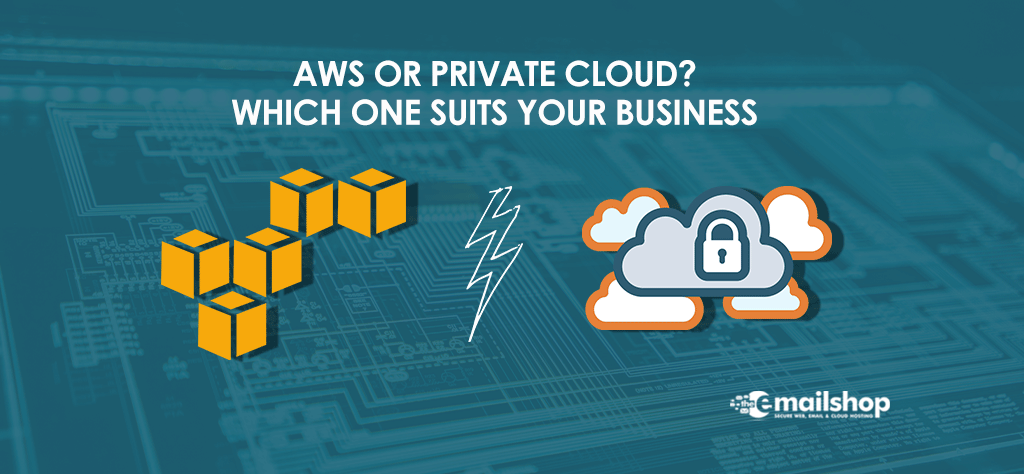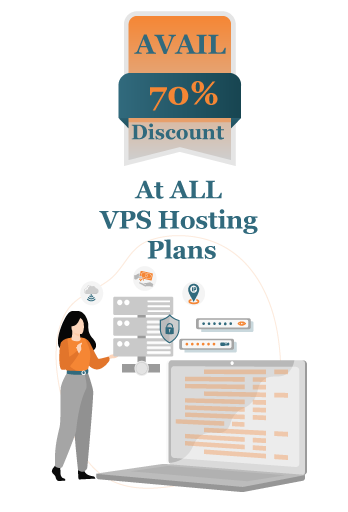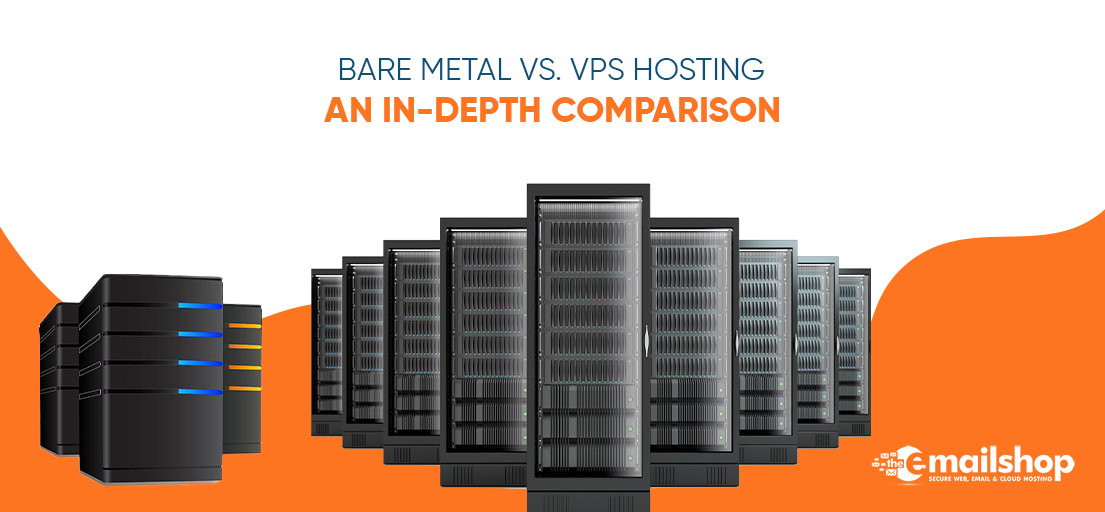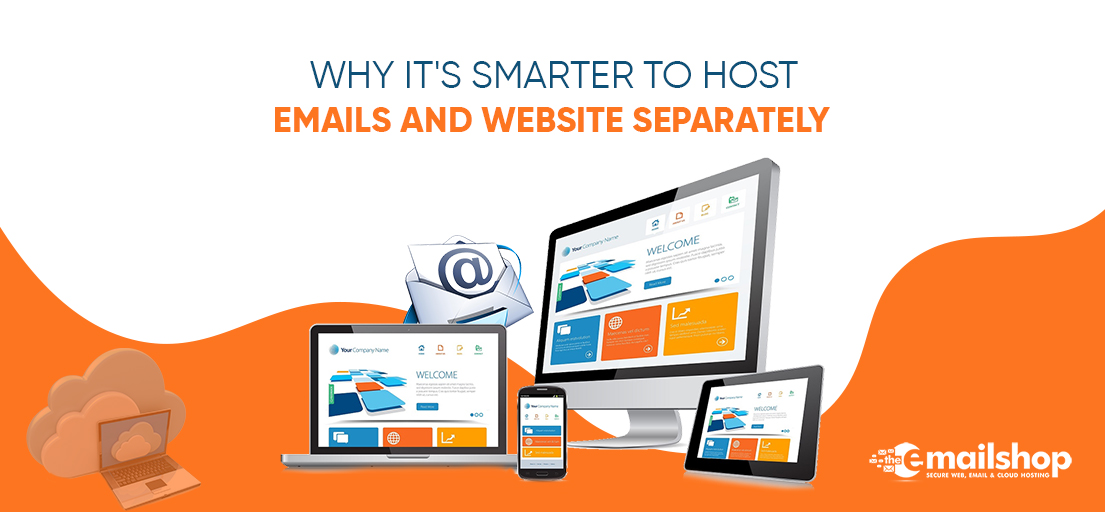Modern businesses require easy maintenance and convenient scaling. So business owners try to look for suitable infrastructures. People are switching more towards cloud solutions, and the debate usually leads to the tricky selection of AWS vs Private cloud.
We will check the basic definitions, pros and cons, and use cases. The reading goal is to make readers understand the difference between them and choose the better model for their businesses.
AWS: Introduction & Definition
AWS is the abbreviation of Amazon Web Services. This subsidiary of Amazon provides on-demand computing platforms and APIs on a pay-as-you-go basis. Also, they provide essential infrastructure and distributed computing frameworks and tools.
Amazon Elastic Compute Cloud (EC2) could be one example. It lets the users have a virtual computer instance. They can build resilient applications by combining multiple instances available on the internet. The virtual instance version of AWS and the actual computer have many common attributes.
Hosting Types
So, AWS offers several cloud-based infrastructure services. Products are feature-rich, and their many services are just like Dedicated Server Hosting and VPS hosting that comes with storage services and analytics.
Whether you need to host a simple website, a heavy application, or a complex eCommerce store, you must consider your requirements very carefully. For example, you may need things like autoscaling, some particular tools, or integration with specific third-party tools. So, you may choose one from the private cloud or AWS.
Pros of AWS
Autoscaling and Elasticity
The AWS environment is nothing but a public cloud built on a long array of server farms.
With AWS, you can make many VM instances. So whenever your teams feel the need, they can scale up and down applications. This elastic infrastructure allows you to have as many resources as you want and whenever you want.
Reliability
Because Amazon is becoming their partner, some IT teams prefer AWS over private cloud. This way, Amazon users also get the multi-billion dollar computing infrastructure.
So when business owners work with a platform that more than one million people use, they know the task will be done their way. Reliance on services like automatic recovery and DynamoDB storage is the best advantage since they save data in three different accessibility zones to ensure the security of mission-critical data.
Cons of AWS
Potential to Overspend
Most people would agree that a pay-as-you-go structure is nice to have. Payment being equal to usage means a good flexibility level. Yet, it can become a problem if there is no mechanism to monitor the usage. As a result, your monthly spending can exceed your expectations. Larger organizations may not have to care too much about this. But for small and new businesses, every single dollar matters.
Lack of Support
Before making a final choice, you should know how much support you need. It would help if you clearly understand your future support requirements. It is crucial to know when deciding between AWS or a private cloud.
A lot of AWS packages provide little or no support at all. However, Developer, Business, and Enterprise support tiers have a substantial price tag. So if you need more help, you should be prepared to pay more.
General Service Issues
Partnering with a big company such as Amazon is not always good. On the contrary, it can be not nice sometimes. Heavy traffic can hurt any infrastructure, no matter how big. You may have to experience issues like server connectivity and server downtime.
AWS Use Cases
Amazon Web Services are the best option for developers and agencies. Companies looking for high scalability and availability are also perfect candidates. It is because they already have the technical aptitude required to manage the environment and utilize the full potential of AWS services. They will not be asking for support every other day.
However, it does not mean that support is not available. You will have to pay more to get Amazon’s third-party support. These third parties are part of the AWS Partner Network. Since they can track the usage and check how they influence utilized services, usage costs might not interest them too much. So, if you are confused if AWS is good for you or not, let us consider some real-world scenarios.
1. Mobile, Web, and Social Apps
Engineers can develop trendy and modern apps for today’s dynamic business needs. AWS lets them build both web and social apps on the serverless platform of Amazon. You had to use Amazon’s on-site legacy server room not so long ago. However, those are things of the past. AWS has allowed developers to design such apps without typical system infrastructure or server OS.
2. Enterprise IT
What makes Enterprise IT adoption slow-paced? Well, it is because server implementation and procurement take time. IT managers and CTOs can run and test secondary operations in the cloud using AWS.
3. Gaming
We know that high-speed and high-resolution games are software platforms that need many resources. AWS enhances the gaming experience for its users by providing a readily available global gaming network.
What is Private Cloud?
It is a service that lets you connect two or more physical servers into one. It combines all physical servers or nodes to get one pool of resources. Hereafter, all resources are divided across all virtual machines on your node.
There is not much difference between the public and private cloud offers. The difference lies in the scope. Unlike the public cloud, the private cloud makes all offers within your cluster of servers. But this article is about the comparison of AWS and private cloud. AWS uses server farms, not server clusters.
The private cloud allows you to get as many nodes as you need to compensate for all virtual machines of your project. That makes costs predictable. It also reduces the total cost.
Types of Private Cloud Hosting
There are three fundamental types of private cloud hosting: virtual private cloud, hosted private cloud, and managed private cloud.
Virtual Private Cloud (VPC)
This remotely hosted private cloud instance is found within the public cloud. In comparison, VPC has much better security and access control capabilities. It utilizes logical separation.
Hosted Private Cloud
The cloud service hosts the hosted private cloud in the off-premises data center. It works on a dedicated server infrastructure, so there is no sharing with other organizations. Instead, the service provider is there to manage the network and both the software and hardware of the cloud.
Managed Private Cloud
Managed private cloud hosting holds providers responsible for everything, including networking, hardware, day-to-day operations of private cloud, and software like VMware. It also comes with extra features that help you save both financial resources and your time in the long run as a business. In addition, a managed private cloud will offer you much better control over the resources compared to AWS.
Pros and Cons of Private Cloud Hosting
It would be better also to have an idea of private cloud hosting before finalizing the choice of AWS. AWS is cost-effective, but the private cloud is straightforward to set up and operate. Let us examine the plus and minus points of private cloud hosting.
Pros of Private Cloud
Feature-Rich
Private clouds offer firewalls, and load balancers come with private clouds. Many providers also give NetApp SAN (Storage Area Network) to store your files and let you access them across your virtual machines.
Predictable Spend
Price will always be predictable because private cloud hosting is based on essential resources. Therefore, you won’t have to go through price fluctuations for long. Also, the recurring monthly cost structure ensures the total cost will be lower.
Ease of Consumption
Private cloud is also easy to consume without additional skills and training. Users may also prefer the familiar structure they get with private cloud vs AWS.
You do not need any additional skills or training to consume private clouds. However, most people would like the familiar structure they receive with private cloud vs AWS. Private Cloud hosting runs on user-friendly frameworks and server stacks in Windows and Linux environments, in contrast to AWS’s API and services model. You will be ready to go after the infrastructure is ready.
Cons of Private Cloud
Licensing Costs
Many people would like to consider the cost when choosing between private cloud and AWS. Additional licensing makes private clouds expensive. In some cases, you would have to pay for additional licenses.
Less Elastic
The elasticity of the private cloud is lesser than the public cloud. You can easily add resources. Also, it is super easy to add resources on-demand. However, you can do it by staying within the private cloud’s resources. Some projects need rapid growth and short turnaround times, which demands more flexibility.
Private Cloud Use Cases
Agencies, developers, and businesses looking for single-tenant cloud hosting make the perfect use case for the private cloud. Some appropriate examples are SaaS platforms, eCommerce websites, client-management systems, point-of-sale apps, and client-management systems. Private cloud meets the requirements of all of them. However, real-world examples can show the best comparison. So let us see how a private cloud can make your life better.
1. SaaS Applications
Multi-platform SaaS applications that need single-tenant hosting are one of the best use cases that reap the maximum benefit of private cloud infrastructure. First, you must ensure that you have highly available and scalable servers. Then, establish the necessary virtual machines with the help of load balancing and failover for high availability. You can use allocated resources for that.
2. Big Data
The volume of data is constantly increasing when it comes to database-intensive websites and applications. Therefore, you must have a solution to store and process the data efficiently across the virtual machines and nodes.
Private cloud hosting makes scaling very easy in such scenarios by allowing you to add extra nodes to fulfill the resource needs. Adding resources this way enables virtual machines to be scaled across the private array as needed.
3. E-Governance Applications
Added security is another benefit of a private cloud. That makes it suitable for government organizations because they have a lot of confidential data to handle and process. When they can save managing costs, they can use it to improve the lives of their citizens.
For Discount and Offers, Visit our Official Twitter Page









